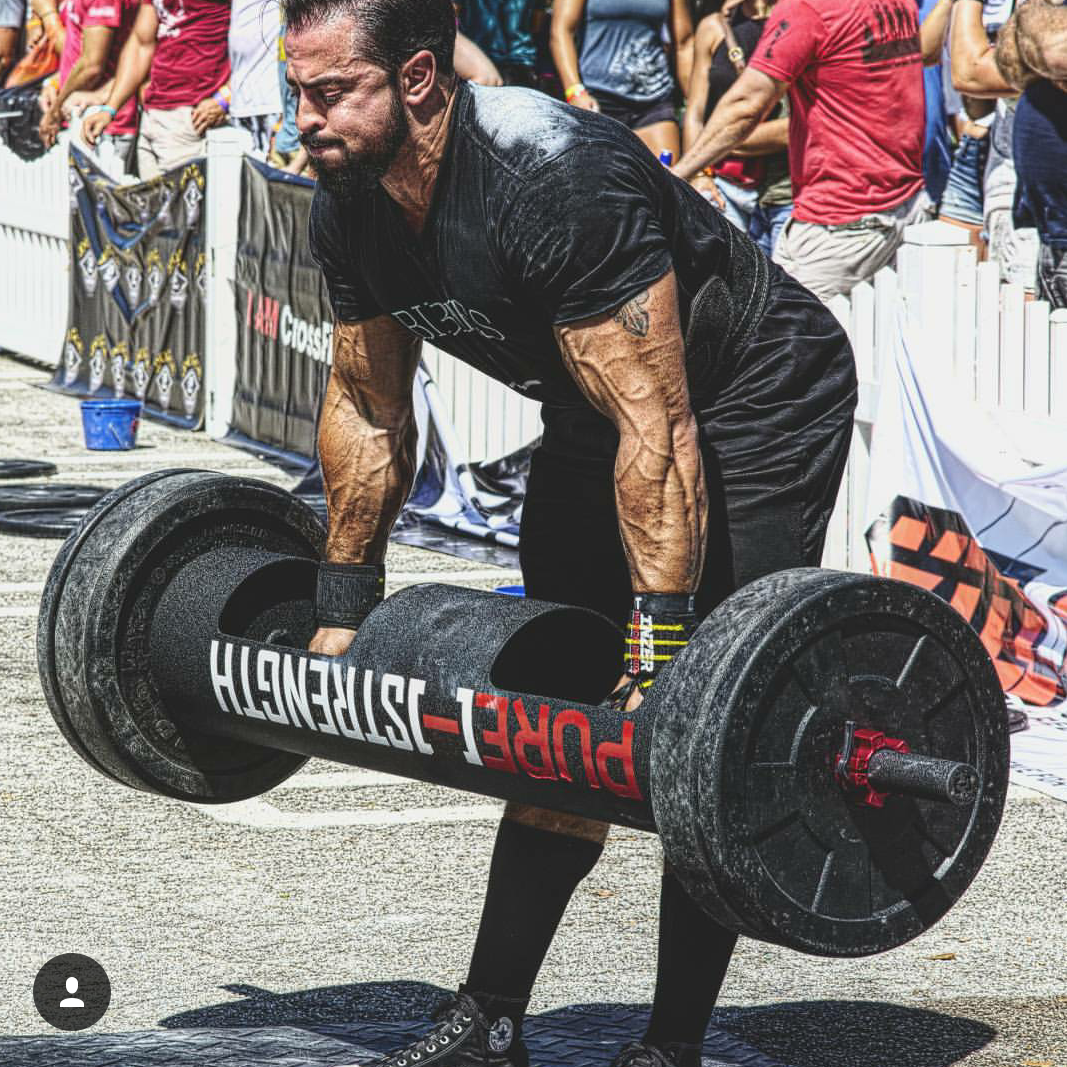
29 Sep Food As A Recovery Tool: Something to Think About
By: Danny Vega
“No one wants to be really sick.”
-Desmond Kal-El Vega
[wa-wps]
Disclaimer:
I am a lay person. My background is in science, and I have a Master’s of Science in Human Performance from the University of Florida college of Health & Human Performance. I am not, however, a Registered Dietitian, Nutritionist, M.D., PH.D., or anyone else who is beholden to their associations and their dogma. What this means is that I can say what I want and you can either choose to adopt it or not. There are over 40 years of good research on the use of carbohydrates as fuel for athletics. I will not debate or undermine that. I am simply saying that there is another way, and the science behind it is compelling. Research on low carb, high fat diets for athletes is in its infancy (relatively speaking), but it is growing; and one cannot discount the growing amount of people experimenting with this way of eating and seeing great results. Top level endurance athletes have reached the pinnacle of their sports eating this way. Can I name a list of elite strength athletes eating this way? No, I cannot. If I had to guess, it is because very few people have wanted to take the risk of eliminating carbs because of their fear of a decrease in strength and performance. This is why we need more n=1 subjects to try it for themselves. If you are still interested in what I have to say, read on.
As a society, we have really gotten away from trying out different foods and seeing how they affect us. For whatever reason, we put very little thought into what we eat, and go about our lives. When we get headaches, body aches, or any other health issues, we simply treat them. We go to the chiropractor, massage therapist, or take medication. At the risk of sounding like a total hippie, I’m going to throw this weird idea out there—maybe what we eat has a profound effect on how we feel and perform. Revolutionary, isn’t it? About 2500 years ago, Hippocrates said, “Let food be thy medicine and medicine be thy food.” This has proven to be true in several ways. The food you eat has a great impact on what chronic diseases you may or may not contract. I am not saying eating the best diet is some panacea that will cure you of all your ills. What I am saying is that all things equal (genetics, other external factors), if you optimize the way you eat, you will look and feel better.
Why Try This?
Since switching to the ketogenic way of eating, I have noticed several benefits. The ones I will focus on in this article are relevant to powerlifters and strength athletes. Besides my waist shrinking almost immediately, I noticed a huge decrease in inflammation early on. Walking up and down stairs felt easier. My joints felt 10 years younger. Because of this, I began to think to myself, “Who could benefit from these changes?” Immediately I began to think of all my friends who have beat themselves into the ground, are injured, have torn ligaments and tendons, and now have to get fixed and start on their road to recovery. What better time to experiment with a diet like this? You are out of commission. You probably aren’t going to train hard for weeks to months. This is the perfect opportunity to switch to a low carb, high fat ketogenic way of eating and see how your body reacts. In my humble opinion, doing this in conjunction with your rehab and medication/supplement regimen could help you recover quicker and give you some ancillary benefits like fat loss, all while sparing muscle. Note: you don’t have to believe the claims I make, just do your own research and you will find several studies dating back decades that a low carb, high fat diet is effective at burning fat and sparing muscle.
What Is the Ketogenic Way of Eating?
Put simply, the ketogenic way of eating is when you lower your total carb intake to about 5%, protein to 20-25%, and increase your fat to 70-75% of your total calories, which forces your body to use ketones as energy. To give you an example, I am 222 lbs at about 8% bodyfat. My training day macros are 35 total carbs, 180 grams of protein, and 310 grams of fat. On off days I lower the calories by a few hundred but keep proportions the same. You don’t have to get all OCD like I do, but you do need to keep things in the same ballpark. Keep the protein moderate and the carbs low, and the fat high. There are a growing number of ways to do keto, however I like to keep it simple. You can always play with adding carbs in, refeed days and other strategies to see how they work. But in my opinion (what do I know?) keeping it simple is best. If you are going to try this out, don’t worry about all these complicated variations.
Now, for a 50,000 foot view of the science: body stores of fat fuel are on average about 40,000 calories. Conversely, the maximum stores you will have of carbohydrate fuel are about 2,000 calories. This is why you have to keep hitting that carb IV or you will risk a decrease in performance. So, what happens when you cut the carbs and increase the fat? At first, you may feel groggy, less sharp cognitively, weaker and with less endurance. This is because your body is being deprived of the type of fuel it has used for pretty much your whole life. We have become accustomed to using carbs, and we have gotten really good at it. There’s a huge industry catering to this way of eating—carb supplements, gels, high carb foods, etc. However, once you become fat adapted, you may be able to tap into a much more abundant fuel source. Think of it as taking your car in for a modification from a smaller gas tank to a much larger diesel tank. How long it takes to become fat adapted is up for debate; it can be as little as 2-4 weeks and as much as 3 months. Some have been able to get there quicker by using intense anaerobic exercise at the beginning of their switch to low carb in an effort to deplete glycogen stores and kick into ketosis quicker.
Two of the best scholars in this way of eating (Jeff S. Volek, Ph.D., R.D. and Stephen D. Phinney, M.D., Ph.D.), summarize the benefits of this way of eating in The Art & Science of Low Carb Performance:
- Low carbohydrate diets are anti-inflammatory, producing less oxidative stress during exercise and more rapid recovery between exercise sessions.
- Physiological adaptation to low carbohydrate living allows much greater reliance on body fat, not just at rest but also during exercise, meaning much less dependence on muscle glycogen and less need to reload with carbohydrates during and after exercise.
- Low carbohydrate adaptation accelerates the body’s use of saturated fats for fuel, allowing a high intake of total fats (including saturates) without risk.
- At the practical level, effective training for both endurance and strength/power sports can be done by individuals adapted to carbohydrate restricted diets, with desirable changes in body composition and power-to-weight ratios.
Like I said at the onset, there aren’t many strength athletes eating this way, and it may very well not work for you. If your interest is piqued, then do some research on the science behind this way of eating; don’t just take my word for it. Try it for yourself after an injury or in the off season. You may be surprised at the results. One last thing—just know that at Team PRS, some of us will be focused on how to take advantage of this way of eating and optimize it for strength athletes. Keep an eye out for more articles, info, as well as some other exciting opportunities on how we can help make this work for you.
Danny Vega
Latest posts by Danny Vega (see all)
- Danny Vega – High Protein recap and training - November 8, 2017
- Danny Vega – Hypertrophy Experiment UPDATE - October 28, 2017
- Danny Vega – Hypertrophy Week 1 – 1020Life Seminar - October 9, 2017








Sorry, the comment form is closed at this time.